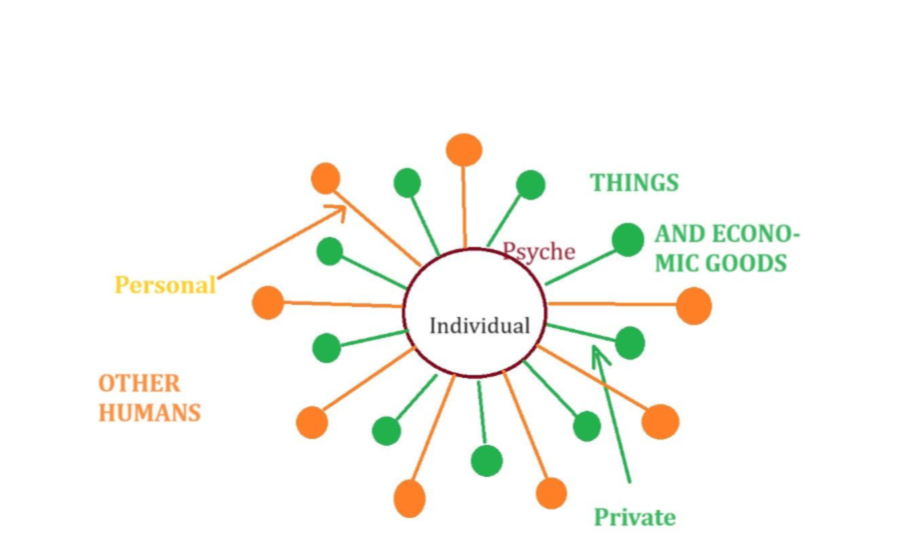Collective interest in the workplace vs personal, individual, private.
How to build a motivated and engaged team and connect individual employee goals with the overall goals of the company? When working in a team, each person plays a crucial role. Let’s examine how a person is motivated in a team environment.
This article by Gennadii Andreev, PhD in Philosophy discusses the significance of peer-to-peer recognition and the unique and inimitable nature of individuals.
Building a motivated and engaged workforce is not a new concept and is based on collective interest. However, the contradiction between individual goals and the overall goals of the company can be managed.
It’s important to note that this issue cannot be resolved by an inspirational leader or personalized employee motivation. When working in a team, each person plays a crucial role. This article by Gennadii Andreev, PhD in Philosophy discusses the significance of peer-to-peer recognition and the unique and inimitable nature of individuals
We connect social theory with a work practice in AlbiCoins employee-tech solution with our unique product concept. Be smart and innovative in your team incentive programs.
Our unique product concept connects social theory with work practice in AlbiCoins’ employee-tech solution. Be smart and innovative in your team incentive programs.
The role of one person in teamwork.
The fundamental idea of the Western civilization is an idea of human beings as unique and inimitable individuals. Born from the dogma about immortal souls in Plato’s dialogue and Judeo-Christian theology, a view on humans as a person has transformed to the Modern approach by Enlightenment philosophers. In this field there is the chief achievement of John Locke. As John B. Davis emphasized: “One way to understand the autonomy of atomistic individuals—the way that Locke understood it—is to suppose that there must always be something about individuals that remains unchanged when they interact with others”[1].
Today, constitutions of the Western countries and the Universal declaration of human rights emphasize that every human being does have unalienable certain rights as an individual. Schooling in Europe, in North America and in other countries is based on individual attitude to every student and respect of his, her or their rights.
However, this obvious and self-evident idea should be proofed by everyday practice in our companies and teams.
As in literature of the Classicism era sometimes there is conflict between sense and debt. In other words, between the inner psyche of an employee and the interest of the company.
The thing is the collective interest (or a team’s interest) is not a simple arithmetical sum of individual interests of every employee. The team’s purpose is a result of long term debating and consideration, and, of course, often it is a reaction to a concrete situation.
A company’s quick reaction to an actual challenge can be the reason for deep stress of employees. Moreover, the CEO can issue some solutions in an authoritarian way. In addition, companies usually have stable and immutable standards. All these can be reasons for conflict between individual one and collective one in the team
To escape conflicts team leaders should understand the difference between three philosophical notions: individual, personal, and private. In the beginning let us present the scheme:

Individual one is a feature of the human psyche to be inimitable. The individual one exists only once in eternity: eternity-before it never existed, eternity-after it will never exist.
Personal one relates to the interactions with other humans. Private one meanwhile touches relationships with things (items, belongings) and economic goods (which are not only material).
In real life we observe a combination of these three dimensions of human personality.
If there are no other people and proper items, an individual cannot fully express. However, all these three dimensions together create a human view of him/her/them-selves. As Monica Lee emphasized: “Our view of ourselves, of others and the social situation is not laid down by some external force, but is constructed and co-regulated by the people involved”[2].
Now, let us return to the interaction between manager and employee. Nobody (including manager, of course) can control and even know for sure the team member’s individual one. It is an infinite and unlimited universe, not understandable, real Ding an Sich (thing in it-self). However, a manager can work with an employee’s private and personal one.
All we know is that high-paid salary and the opportunity to buy expensive items are the best kind of stimulation for most of co-worker. The thought about growing private property will be a better carrot than a praise “good job!”. That is why companies for increasing productivity should give a bonus for employees. And it is not only in addition to salary. Competitions with prizes will be good stimulation, especially if you organize them every week. Moreover, even symbolic gifts such as a pen or a little notebook will be good.
About personal one we emphasize the obvious fact of a friendly atmosphere.
The way to make this atmosphere is gift-crossing, i.e., a play when they present each other symbolic gifts. As Marcel Mauss, the French sociologist, wrote in his immortal essay The Gift: “A considerable part of our morality and our lives themselves are still permeated with this same atmosphere of the gift, where obligation and liberty intermingle”[3].
Using this combination of individual, private and personal ones, we can get both individual and collective success in our companies.
- [1] John B. Davis, The Theory of Individual in Economics. Identity and value (New York and London: Routledge, 2003) 24
- [2] Michael Pearn (Ed), Individual Differences and Development in Organizations (Chichester, John Wiley & Sons, Ltd, 2002), 20
- [3] Marcel Mauss, The Gift. The Form and Reason for Exchange in Archaic Societies (New York, London: Routledge Classics: 2002), 83



